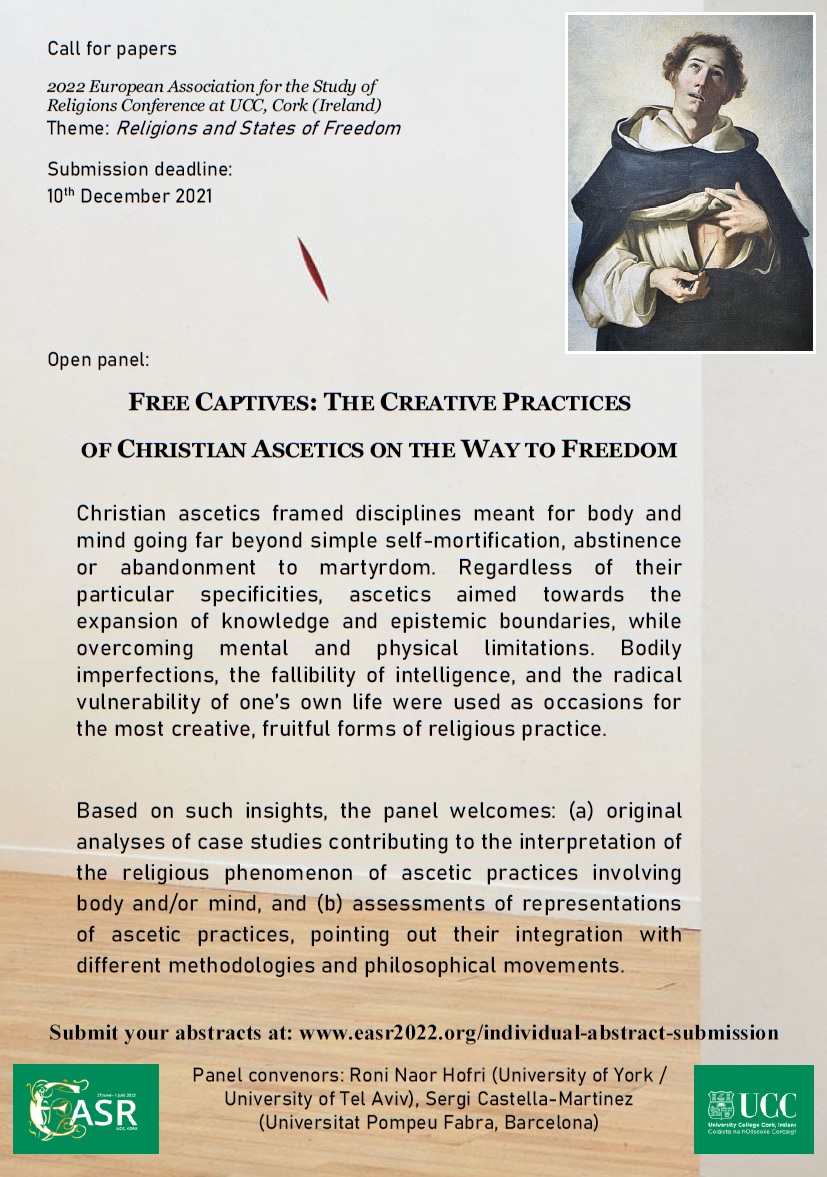[Call for papers: deadline 10.12.21] "Free Captives", in the 2022 European Ass. for the Study of Religions Conference, Cork (June-July 2022)
[Call for papers: deadline 10.12.21] "Free Captives", in the 2022 European Ass. for the Study of Religions Conference, Cork (June-July 2022)

From June 27th to July 1st, 2022, the European Association for the Study of Religions Conference will take place in the UCC Cork, Ireland. The theme of the upcoming conference is States of Freedom, and the call for submissions will remain open until December 10th, 2021.
Sergi Castellà Martínez, PhD Candidate in the Research Group of the Haas Library: Poetics of Knowledge, and Dr. Roni Naor-Hofri (University of York / University of Tel Aviv), are the convenors of the Open Panel "Free Captives: The Creative Practices of Christian Ascetics on the Way to Freedom," and welcome submissions related to this topic across disciplines and times.
2022 EASR Conference Information Submit your abstract here
Guidelines of the panel
Ascetic religious practices, which ran the gamut from collective, pompous rituals to daily, mute, introspective prayer, gave individuals freedom to break from a given state of being in the world and reach a new state of being, both physically and metaphysically. Across time and space, we find Christian ascetics, social and spiritual reformers of all ages and latitudes, who treated their lives and practices, both mental and physical, as examples of the relation between the finite and infinite.
Whether creating new imaginative forms from inside the core of organized religion or acting regardless of its boundaries, Christian ascetics framed disciplines meant for body and mind - contemplative prayer, illumination, or the unio mystica - going far beyond simple self-mortification, abstinence or abandonment to martyrdom.
Regardless of their particular specificities, ascetics aimed towards the expansion of knowledge and epistemic boundaries, while overcoming mental and physical limitations, by way of different means, such as apophasis, paradox, or heterodoxy. Bodily imperfections, the fallibility of intelligence, and the radical vulnerability of one’s own life were used as occasions for the most creative, fruitful forms of religious practice.
Based on such insights, the panel welcomes: (a) original and comparative analyses of case studies contributing to the interpretation of the religious phenomenon of ascetic practices involving body and/or mind, and (b) assessments of representations of the phenomenon in question, pointing out the integration of ascetic practices with different methodologies and philosophical movements.
